第127章 LETTER XXII(6)
As I write, I look down upon Taipeng on "a people wholly given to idolatry." This is emphatically "The dark Peninsula," though both Protestants and Romanists have made attempts to win the Malays to Christianity. It may be that the relentless crusade waged by the Portuguese against Islamism has made the opposition to the Cross more sullen and bigoted than it would otherwise have been. Christian missionary effort is now chiefly among the Chinese, and by means of admirable girls' schools in Singapore, Malacca, and Pinang.
In Taipeng five dialects of Chinese are spoken, and Chinamen constantly communicate with each other in Malay, because they can't understand each other's Chinese. They must spend large sums on opium, for the right to sell it has been let for 4,000 pounds a year!
Mr. Maxwell tells me that the Malay proverbs are remarkably numerous and interesting. To me the interest of them lies chiefly in their resemblance to the ideas gathered up in the proverbs of ourselves and the Japanese.*
[*Mr. Maxwell has since published a paper on Malay proverbs in the Transactions of the Straits branch of the Royal Asiatic Society. I have not been able to obtain it, but I understand that it contains a very copious and valuable collection of Malay proverbial philosophy.]
Thus, "Out of the frying-pan into the fire" is, "Freed from the mouth of the alligator to fall into the tiger's jaws." "It's an ill wind that blows nobody good," is, "When the junk is wrecked the shark gets his fill." "The creel tells the basket it is coarsely plaited" is equivalent to "The kettle calling the pot black." "For dread of the ghost to clasp the corpse," has a grim irony about it that I like.
Certain Scriptural proverbial phrases have their Malay counterparts.
Thus, the impossibility of the Ethiopian changing his skin or the leopard his spots is represented by "Though you may feed a jungle-fowl off a gold plate, it will make for the jungle all the same." "Casting pearls before swine" by "What is the use of the peacock strutting in the jungle?" "Can these stones become bread?" by "Can the earth become grain?" "Neither can salt water yield sweet," by a very elaborate axiom, "You may plant the bitter cucumber in a bed of sago, manure it with honey, water it with molasses, and train it over sugar cane, but it will be the bitter cucumber still," and "Clear water cannot be drawn from a muddy fountain."
Some of their sayings are characteristic. In allusion to the sport of cock-fighting, a coward is called "a duck with spurs." A treacherous person is said to "sit like a cat, but leap like a tiger;" and of a chatterer it is said, "The tortoise produces a myriad eggs and no one knows it; the hen lays one and tells the whole word." "Grinding pepper for a bird on the wing" is regarded as equivalent to "First catch you hare before you cook it." "To plant sugar-cane on the lips" is to be "All things to all men." Fatalism is expressed by a saying, "Even the fish which inhabit the seventh depth of the sea sooner or later enter the net." "Now it is wet, now it is fine," is a common way of saying that a day of revenge is not far off. Secrecy is enjoined by the cynical axiom, "If you have rice, hide it under the unhusked grain."
"The last degree of stinginess is not to disturb the mildew," is a neat axiom; and "The plantain does not bear fruit twice," tells that the Malays have an inkling that "There is a tide in the affairs of men," etc.
I have found it very interesting to be the guest of a man who studies the Malays as sympathetically as Mr. Maxwell does. I hope he will not get promotion too soon!*
[*As I copy this letter I hear that Mr. Maxwell has been removed to a higher and more highly paid post, but that he leaves the Malays with very sincere regret, and that they deeply deplore his loss, because they not only liked but trusted him. During the time in which he was Assistant Resident, and living in the midst of a large Chinese population, it was necessary to be very firm, and at times almost severely firm, but the Chinese have shown their appreciation of official rectitude by presenting him with a gorgeous umbrella of red silk, embroidered with gold, which they call "A ten-thousand-man umbrella," i.e., an offering from a community which is not only unanimous in making it, but counts at least that number of persons.]
I. L. B.